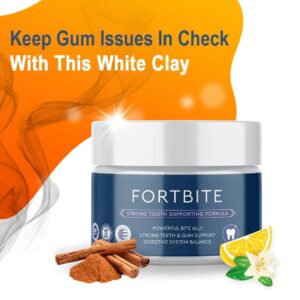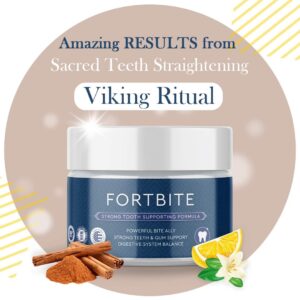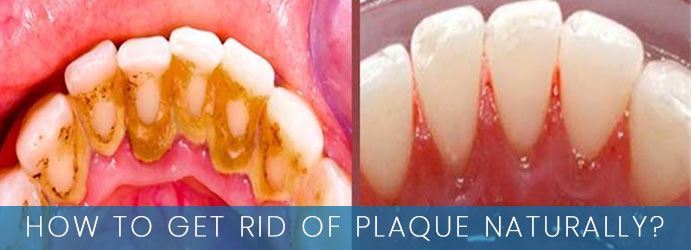How Can You Have Stronger, Healthier Teeth?
The health of our gums and teeth provides a reliable indication of how our body functions. Even while regularly flossing and practicing good dental hygiene are great ways to keep teeth healthy, they are only the beginning. True dental health is built on a diet and nourishment that is adequate.
To make your teeth stronger and healthier, you can follow these practices:
- Maintain Excellent Oral Hygiene:
- Brush Regularly: Brush your teeth at least twice a day, ideally after every meal, using fluoride toothpaste.
- Floss Daily: Flossing helps remove food particles and plaque from between your teeth and along the gumline.
- Rinse with Mouthwash: Use an antimicrobial or fluoride mouthwash to reduce bacteria and strengthen enamel.
- Balanced Diet:
- Consume a diet rich in fruits, vegetables, lean proteins, whole grains, and dairy products. These foods provide essential nutrients for your teeth.
- Limit sugary and acidic foods and drinks, as they can contribute to tooth decay.
- Adequate Hydration:
- Drink plenty of water, which helps rinse away food particles and maintain a healthy saliva flow. Saliva is essential for protecting and remineralizing your teeth.
- Regular Dental check-ups:
- Visit your dentist for regular check-ups and professional cleanings. These appointments allow your dentist to identify and address dental issues early.
- Fluoride Treatment:
- Discuss with your dentist whether you need fluoride treatment to strengthen your teeth. Fluoride helps protect enamel and prevent cavities.
- Protect Against Injury:
- If you participate in contact sports, use a mouthguard to reduce the risk of injuries to your teeth and mouth.
- Avoid using your teeth as tools for opening packages or biting non-food items, as this can lead to chipping and fractures.
- Manage Dry Mouth:
- If you have dry mouth, consult your dentist for recommendations to increase saliva production, as saliva helps protect teeth.
- Avoid Smoking and Limit Alcohol:
- Smoking and excessive alcohol consumption can negatively affect oral health. Reducing or quitting these habits can help improve your overall oral health.
- Stress Management:
- High-stress levels can lead to teeth grinding (bruxism), which can cause tooth damage. Practice stress-reduction techniques like meditation or yoga.
- Incorporate Dental-Healthy Foods:
- Foods high in calcium and phosphorus, like dairy products, leafy greens, and nuts, can promote tooth remineralization and strength.
Remember that good oral hygiene practices and regular dental check-ups are crucial for maintaining strong and healthy teeth. If you have specific concerns or dental issues, consult with your dentist for personalized guidance and treatment options.
Can weak teeth become strong again?
Teeth themselves cannot regenerate or become stronger once they’ve experienced significant damage, decay, or erosion. However, there are ways to improve and maintain their strength and minimize further damage. Here’s what you can do to care for your teeth:
- Practice Good Oral Hygiene: Brush your teeth at least twice a day using fluoride toothpaste and floss daily to remove plaque and food particles that can weaken your teeth.
- Regular Dental Check-ups: Visit your dentist for regular check-ups and cleanings. A dentist can identify problems early and recommend appropriate treatments.
- Fluoride Treatments: In some cases, your dentist may recommend fluoride treatments, which can help strengthen enamel.
- Dental Sealants: Dental sealants are protective coatings applied to the chewing surfaces of molars and premolars to protect them from decay.
- Avoid Acidic and Sugary Foods: Limit your consumption of acidic and sugary foods and beverages, as they can erode enamel and promote decay. If you consume these items, rinse your mouth with water afterward.
- Calcium and Phosphorus-Rich Diet: Consume foods rich in calcium and phosphorus, such as dairy products, leafy greens, and nuts. These minerals are essential for healthy teeth.
- Saliva Production: Keep your mouth hydrated and promote saliva production, as saliva helps protect teeth. Chewing sugar-free gum and drinking water can stimulate saliva.
- Mouthguards: If you grind your teeth (bruxism) or play contact sports, consider using a mouthguard to protect your teeth from damage.
- Avoid Using Teeth as Tools: Refrain from using your teeth for tasks like opening packages or biting non-food items.
- Address Specific Issues: If you have specific dental concerns, such as cavities, gum disease, or enamel erosion, consult your dentist for treatment options. These treatments can help stabilize or improve your dental health.
While teeth may not become stronger on their own, following good oral hygiene practices, making dietary choices that support dental health, and addressing dental issues promptly can help maintain the strength and health of your teeth. It’s essential to work closely with your dentist to create a personalized plan for your specific dental needs.
A few Tips To Make Your Teeth Healthy and Strong
Avoid Snacking
Carbohydrate snacks throughout the day give the bacteria in our mouths a steady supply of nourishment. Bacteria that are well-fed will create more acid, which damages tooth enamel. Additionally, it is beneficial to give our digestive systems a rest and a chance to recover.
If you must snack, make sure it is carb-free and after eating, rinse your mouth with water. The sugar should be diluted as a result, and the acids in the saliva should be buffered.
Consume Foods High in Minerals
Since teeth are permeable, they can absorb or lose healthy minerals. Ensuring they are obtaining more minerals than they are losing is crucial. We refer to this process as remineralization.
Plaque can be removed by brushing and flossing, but remineralization is neither aided nor impeded by these dental hygiene practices. You need to consume a diet high in minerals if you want to keep your teeth strong.
foods high in minerals (choose organic sources where possible)
- Organic bone broth, preferably produced at home
- Eggs
- Meat and poultry from pasture
- Dark leafy greens including spinach, broccoli, and kale
- Mushrooms
- Cheese (particularly soft cheeses) (especially soft cheeses)
- Tibetan salt
Cut back on processed sugar in your diet.
Bacteria that produce damaging acid on our teeth primarily feed on sugar. Additionally, it unquestionably plays a role in a number of health issues like diabetes, heart disease, and cancer.
Eliminating refined sugar from your diet will significantly limit the amount of food that bacteria have to consume. This will subsequently shield your teeth from the corrosive acid that bacteria make.
Do not consume grains in your diet.
In summary, phytic acid, a chemical found in grains, nuts, and seeds, hinders the absorption of the advantageous minerals zinc, iron, and calcium. If you must eat grains, it would be safer to do so after they have undergone fermentation.
Wipe your tongue
A smart strategy to lessen bacteria is to keep your tongue clean by thoroughly brushing it as part of your dental hygiene routine. You can also experience cleaner breath and a general feeling of cleanliness.
Consume meals that are rich in fat-soluble vitamins.
Vitamins A, D, E, and K2-rich foods are recognized to enhance dental health. Vitamin D. aids the absorption of calcium and phosphorus While K2 makes sure that calcium gets to our bones and teeth.
Large amounts of fat-soluble vitamins in supplements should be avoided because they can be harmful. Please read the dose recommendations.
Boost absorption through digestion
The digestion of minerals and nutrients might be hampered by poor gut health. Even if you are consuming the right meals, your teeth cannot remineralize if they are not effectively absorbed.
Absorption can be negatively impacted by processed meals, alcohol, parasites, some drugs, stress, and amalgam fillings.
To boost vitamin A, D, E, and K absorption, try eating healthy fats with each meal. Additionally, consume probiotic-rich foods like sauerkraut, kimchi, yogurt, pickles, or kombucha or take a probiotic supplement.
Maintain hydration
Water consumption aids in cleaning germs and food particles from teeth and gums. Additionally, it aids in neutralizing the toxic acid that oral bacteria produce.
Your teeth may become vulnerable to dental decay if you have a dry mouth. Water consumption encourages salivation, which strengthens teeth by cleaning them with healthy minerals.
Use toothpaste without fluoride.
Fluoride is a dangerous substance that has a number of negative side effects, including fluorosis. Our post on the 7 substances in toothpaste you should avoid contains more information on the impacts.
Avoid toothpaste that contains whitening ingredients as well because they can harm your teeth. Ask our team about our tooth-friendly whitening procedures if you want a whiter smile.
Chew gum without sugar.
Gum without sugar encourages salivation, which contains nutrients that build teeth. Gum is a fantastic technique to stimulate saliva and support healthy teeth if you have dry mouth.
In addition, chewing gum after meals or snacks is a terrific alternative when brushing your teeth is not an option. This is due to the fact that chewing gum will boost saliva production, dilute acids, and aid in the elimination of bacteria and food particles from the teeth and gums.
Address digestive issues
Acid from severe heartburn and reflux can damage tooth enamel in the mouth. Treat any gastrointestinal issues by visiting your doctor.
Address any jaw clenching or grinding.
The act of clenching or grinding one’s teeth together often takes place subconsciously. This process wears away or fractures the tooth’s enamel and can occur while you are awake or while you are sleeping.
Consult a dentist if you experience a persistent jawache, facial pain, or worn-down teeth.
Appropriate brushing methods
Your teeth can be strengthened by brushing twice a day for two minutes and by flossing once a day. Brushing frequently aids in removing bacteria and accumulated plaque from teeth.
Frequently visit the dentist
It’s beneficial to visit the dentist every six months to maintain healthy teeth and gums. Your dentist has the ability to spot problems and spot diseases before they become serious.
In addition, the dentist is able to remove from teeth materials like tartar that brushing alone cannot.
Can salt water tighten loose teeth?
Saltwater rinses can help with gum and dental hygiene but are not a solution for tightening loose teeth. Loose teeth are often a sign of underlying dental problems, such as gum disease or weakened supporting structures. To address loose teeth, it’s essential to consult a dentist or periodontist who can diagnose the underlying cause and recommend appropriate treatments. These treatments may include:
- Scaling and Root Planing: For gum disease, a deep cleaning procedure known as scaling and root planing may be necessary to remove plaque and tartar from the tooth and root surfaces.
- Splinting: In some cases, loose teeth can be stabilized with dental splints, which are wires or bands attached to the affected teeth to hold them in place while they heal.
- Bone Grafting: Severe gum disease or bone loss may require bone grafting to strengthen the supporting bone structure.
- Extraction and Replacement: If a tooth is too loose and cannot be saved, it may need to be extracted. In such cases, replacement options like dental implants or bridges can be considered.
- Orthodontic Treatment: In some situations, orthodontic treatment can help correct loose teeth by repositioning them.
- Good Oral Hygiene: Maintaining good oral hygiene practices, including regular brushing, flossing, and dental check-ups, is essential to prevent further dental problems.
Saltwater rinses can be used to reduce inflammation and promote healing after dental procedures, but they are not a standalone solution for loose teeth. It’s crucial to consult a dentist to identify the cause of loose teeth and receive appropriate treatment and guidance.
What are the signs of teeth falling out?
Teeth falling out, also known as tooth loss, can be due to various causes, and the signs may vary depending on the underlying issue. Here are common signs and symptoms associated with teeth falling out:
- Loose Teeth: Teeth becoming loose or shifting from their normal positions can be an early sign of tooth loss.
- Gum Recession: Receding gums can expose the tooth roots and make teeth more vulnerable to falling out.
- Gum Disease (Periodontitis): Gum disease can lead to tooth loss if left untreated. Signs of gum disease include bleeding gums, swollen or red gums, bad breath, and gum recession.
- Tooth Mobility: An increase in tooth mobility or a change in the way teeth fit together when biting or chewing can be a sign of tooth loss.
- Tooth Pain or Sensitivity: Persistent tooth pain or sensitivity, especially when eating or drinking hot, cold, sweet, or acidic foods, can be an indicator of dental problems that might lead to tooth loss.
- Swollen or Inflamed Gums: Swelling and inflammation of the gums can be a sign of infection or gum disease that, if left untreated, can lead to tooth loss.
- Pus Around the Teeth: The presence of pus around the teeth or along the gumline is often a sign of infection and needs prompt dental attention.
- Tooth Decay: Cavities or decay can weaken teeth and, if not treated, may lead to tooth loss.
- Bone Loss: Tooth loss can be associated with bone loss in the jaw, which may lead to changes in the shape of the face.
- Halitosis (Bad Breath): Chronic bad breath can be a sign of dental issues, such as tooth decay or gum disease, that could potentially lead to tooth loss.
If you notice any of these signs or experience oral health problems, it’s crucial to seek dental care promptly. A dentist can diagnose the underlying issues and recommend appropriate treatments to prevent tooth loss and maintain good oral health. Regular dental check-ups and practicing good oral hygiene are essential in preventing tooth loss and preserving your smile.







